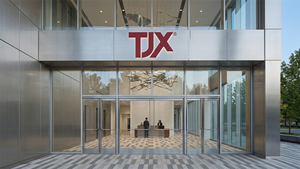SSL Certificate: A Complete Guide to Website Security and Trust
In today’s digital-first world, security is not optional—it’s essential. Every website that collects data, handles payments, or even just wants to appear trustworthy should have an SSL certificate installed. Whether you’re running a personal blog, a growing business website, or a large e-commerce platform, an SSL certificate plays a key role in data protection, user trust, and search engine optimization (SEO).
If you’ve ever wondered what an SSL certificate is, how it works, and why it’s important, this guide will explain everything in detail.
What is an SSL Certificate?
An SSL Certificate (Secure Sockets Layer Certificate) is a digital security credential that establishes an encrypted connection between a web server and a visitor’s browser.
When installed, it ensures that any information transferred—such as login details, credit card numbers, and personal data—remains private and secure.
Websites with SSL certificates use HTTPS (Hypertext Transfer Protocol Secure) instead of plain HTTP, and you’ll see a padlock icon in the browser’s address bar. This small symbol signals trust and security to visitors.
Why is an SSL Certificate Important?
- Data Protection – SSL certificates encrypt sensitive data, preventing hackers from intercepting it.
- Customer Trust – Users are more likely to trust a website showing the HTTPS padlock.
- SEO Benefits – Google favors secure websites in its ranking algorithm.
- Compliance – Many data protection regulations (like PCI DSS for online payments) require SSL certificates.
- Prevent “Not Secure” Warnings – Without SSL, browsers like Chrome and Firefox flag websites as unsafe.
Simply put, an SSL certificate is the foundation of online trust and credibility.
How Does an SSL Certificate Work?
Here’s a simplified process of how SSL works:
- Handshake Process – When a user visits your website, their browser requests a secure connection.
- Certificate Validation – The web server presents the SSL certificate to prove authenticity.
- Encryption – Both browser and server generate a unique session key to encrypt communication.
- Secure Connection – Data transfers safely, ensuring no unauthorized party can access it.
This process happens in milliseconds, making browsing seamless yet secure.
Different Types of SSL Certificates
When exploring SSL certificates, you’ll find several categories based on validation level and domain coverage.
By Validation Level
- Domain Validated (DV) SSL
- Verifies only domain ownership.
- Fastest and cheapest option.
- Ideal for blogs and small websites.
- Organization Validated (OV) SSL
- Requires business verification.
- Displays organization details.
- Suitable for small-to-medium businesses.
- Extended Validation (EV) SSL
- Most trusted and premium option.
- Displays company name in the address bar.
- Best for e-commerce, banks, and enterprises.
By Domain Coverage
- Single-Domain SSL – Secures one domain name.
- Wildcard SSL – Protects one domain plus unlimited subdomains.
- Multi-Domain (SAN) SSL – Secures multiple different domains under one certificate.
Benefits of an SSL Certificate
- Strong Data Encryption (usually 256-bit)
- Trust Indicators (HTTPS + padlock symbol)
- Improved Conversion Rates – Visitors feel safe making transactions.
- Global Browser Compatibility – Works on all major browsers and devices.
- Warranty Protection – Some SSLs provide financial guarantees against breaches.
The Cost of SSL Certificate
The price of SSL certificates varies widely depending on validation type, coverage, and brand:
- DV SSL: $5 – $50/year
- OV SSL: $50 – $200/year
- EV SSL: $100 – $400/year
- Wildcard SSL: $50 – $500/year
- Multi-Domain SSL: $70 – $600/year
 Free SSL options (like Let’s Encrypt) are available but lack warranties and advanced validation. For businesses, paid SSL is recommended for added trust.
Free SSL options (like Let’s Encrypt) are available but lack warranties and advanced validation. For businesses, paid SSL is recommended for added trust.
Best SSL Certificate Providers
Some of the most trusted SSL brands include:
- Comodo (Sectigo) – Affordable and widely used.
- DigiCert – Premium SSL certificates with strong warranties.
- GlobalSign – Enterprise-level SSL with advanced features.
- Thawte – Reliable mid-range option.
- GeoTrust – Good balance of price and trust.
How to Buy and Install an SSL Certificate
- Choose the Right Type – Based on your website’s size, purpose, and domain needs.
- Select a Trusted Provider or Reseller – Compare prices before purchasing.
- Generate a CSR (Certificate Signing Request) – From your hosting control panel.
- Complete Validation – Depending on DV, OV, or EV requirements.
- Install the SSL Certificate – Via hosting provider or server settings.
- Update Your Website Links to HTTPS – Ensure all pages and resources load securely.
Free vs. Paid SSL Certificates
| Feature | Free SSL (e.g., Let’s Encrypt) | Paid SSL (e.g., Comodo, DigiCert) |
| Cost | Free | $5 – $500+ per year |
| Validation Level | DV only | DV, OV, EV options |
| Warranty | None | Up to $1.75 million |
| Support | Limited or none | Full technical support |
| Trust Level | Basic | High (business-grade) |
 Businesses should always invest in paid SSL certificates for maximum credibility and protection.
Businesses should always invest in paid SSL certificates for maximum credibility and protection.
Common FAQs About SSL Certificates
- Do I really need an SSL certificate?
Yes. Without SSL, browsers will label your site “Not Secure,” reducing trust and harming SEO rankings. - Does SSL improve SEO?
Yes. Google uses HTTPS as a ranking factor, giving secured websites an edge in search results. - Can I get an SSL certificate for free?
Yes. Free SSL certificates exist, but they are limited to DV validation and lack warranties. - What happens if my SSL expires?
Visitors will see a warning message, discouraging them from accessing your site. Renew before expiry. - Is all encryption the same?
Yes. Whether cheap or expensive, most SSL certificates provide the same 256-bit encryption. The difference lies in validation, warranty, and support.
For more helpful blog posts like this one, visit the rest of our site, DiscoverBlog.
Conclusion
An SSL certificate is not just a technical requirement—it’s a foundation for building trust, improving SEO, and protecting sensitive data online. Whether you choose a free DV SSL for a personal project or an advanced EV SSL for a large enterprise, securing your website with SSL is a smart and necessary investment.
The cost is minimal compared to the risks of running an insecure site. By choosing the right SSL provider and certificate type, you ensure your website is safe, credible, and ready to grow in today’s competitive digital landscape.
More News
View More




Recent Quotes
View MoreQuotes delayed at least 20 minutes.
By accessing this page, you agree to the Privacy Policy and Terms Of Service.